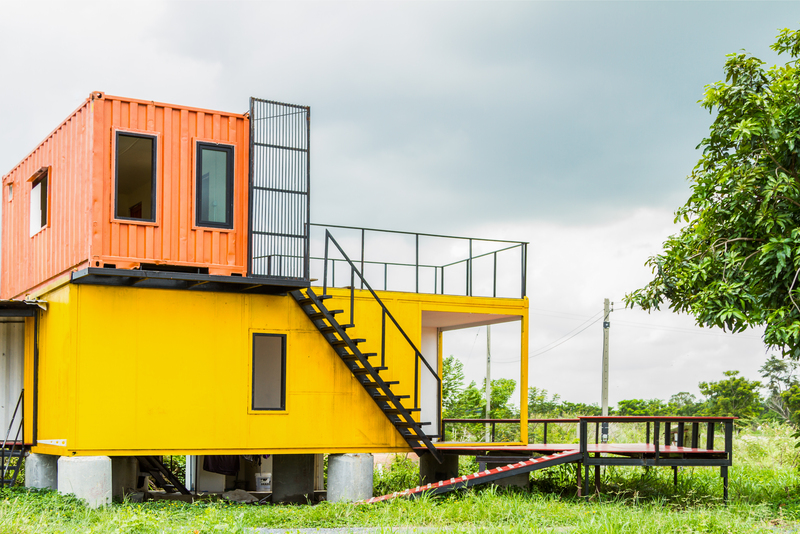Easy Methods to Save Money on Bulky Waste Item Collection
Are you struggling with bulky waste item collection costs? Perhaps you recently renovated, purchased new furniture, or simply need to declutter your home. Disposing of large, bulky items can often be a hassle and an expense, but it doesn't have to be! In this comprehensive guide, we will explore cost-effective solutions and easy methods to save money when getting rid of unwanted large items.

Understanding Bulky Waste Collection
Bulky waste, sometimes referred to as large item disposal, includes household items that are too big or heavy for regular trash collection. Examples include mattresses, sofas, appliances, cabinets, garden furniture, and other sizable objects. Municipalities, private companies, or non-profit organisations typically handle the collection of bulky waste items.
However, the cost of removing such items can add up quickly, especially if you are discarding multiple things or haven't researched your options. Thankfully, there are several methods to save money on bulky item collection and even dispose of your items free of charge in some cases!
Why Is Bulky Waste Collection So Expensive?
Before exploring saving methods, it helps to know why bulky waste item collection costs are often high:
- Large items require special handling and transportation.
- Fees may include labour, disposal, and recycling costs.
- Some items, like refrigerators or electronics, need environmentally safe disposal.
- Landfill taxes and regulations can raise prices.
Understanding the expenses will help you identify where you can cut costs or find cost-efficient alternatives.
Top Easy Ways to Save Money on Bulky Waste Item Collection
Let's explore practical tips and strategies to minimize your expenditure when dealing with bulky trash.
1. Bulk Collection Days & Local Council Services
Many local councils or municipalities offer scheduled bulky waste pickup days, often at a reduced rate or sometimes even for free for residents. Here's how to take advantage:
- Check your council's website for schedules and eligibility for free or low-cost pickups.
- Combine items with neighbours to maximise the allowance per collection, if permitted.
- Book early, as slots may be limited.
This method can help you save money on bulky waste collection by using the services you're already paying for through taxes or local fees.
2. Donate or Give Away Usable Items
If your large items are still in usable condition, donating or giving them away benefits both you and others:
- Contact local charities, shelters, or non-profit organisations. Many offer free bulky item collection for donations.
- List your items on sites like Freecycle, Facebook Marketplace, or Gumtree for local pickup.
- Check with schools, community centres, or religious groups who may need household items.
By giving your items a second life, you can avoid disposal costs while supporting those in need. It's an eco-friendly and budget-conscious solution!
3. Sell Your Bulky Items
Why not make money instead of spending it? Many people are looking for budget-friendly secondhand furniture, appliances, and equipment.
- Use local selling platforms such as Craigslist, Facebook Marketplace, OfferUp, or Nextdoor.
- Highlight that the buyer must collect the item themselves - no moving costs for you!
- Host a garage sale and include your bulky items.
Even if you don't sell for much, you'll offset any potential disposal charges and ensure your item is reused.
4. Hire a Skip or Shared Skip Service
If you have a lot of large waste, a skip (also known as a dumpster in some countries) can be a cost saver. Here's how to save even more:
- Share the skip and its cost with neighbours or friends needing bulky waste disposal.
- Hire a skip that fits your exact needs--don't overpay for space you won't use.
- Look for companies offering fixed-price deals or discounts for online bookings.
- If you're clearing a whole house, consider an "all-in-one" removal service for a set price.
Using a skip efficiently can significantly reduce the price of bulky item removal, especially for big projects.
5. Take Bulky Items to the Recycling Centre Yourself
Most communities have local recycling facilities or household waste recycling centres that accept large items, often free for residents.
- Check your local authority's website for opening times and accepted items.
- Borrow or rent a van or use a friend's vehicle to transport items - cheaper than a paid collection service.
- Some centres charge for specific items (like mattresses), so clarify fees in advance.
- Sort your items first to maximise recycling and minimise charges.
Although it requires effort, this DIY bulky waste disposal method is one of the most cost-effective ways to deal with large unwanted items.
6. Arrange a Swap or Barter
You can save money on bulky item collection by swapping your items with someone who needs them. Try local barter groups or online platforms.
- Offer your unwanted furniture or appliances in exchange for help with moving or delivery.
- Barter for other household goods or services.
- Use local community boards or online groups to connect with others.
This method not only clears space but can help you acquire something you actually need--no cash required!
7. Disassemble Large Items
Many bulky items become cheaper or even free to dispose of if broken down.
- Unscrew, saw, or break down furniture into smaller parts.
- Check your local guidelines - often, smaller pieces can be placed in regular trash collection.
- Separate metal, wood, and fabric - some recyclers pay for metal scrap or furniture parts.
This simple method can avoid high fees and sometimes even generate a small return!
8. Compare Bulky Waste Collection Companies
Not all removal companies charge the same rates for bulky items. Shop around!
- Get multiple quotes from both local waste haulers and national services.
- Look for hidden fees, such as per-item surcharges or distance fees.
- Ask about "wait and load" options where you load items yourself for a lower price.
- Check for online reviews and special offers - many companies give first-time customer discounts.
Comparing options can save you significant amounts when looking for the best value.
9. Utilise Retailer Take-Back Schemes
If you're replacing an appliance or furniture, see if the retailer offers a take-back or old-item removal service as part of your purchase.
- Major retailers often remove your old item when delivering the new one, sometimes at a reduced cost.
- Ask about recycling incentives--sometimes the pickup is free if you buy a replacement.
- Read the terms: Ensure the pickup date matches your needs and the old item is easily accessible.
Bundling the removal with your new purchase reduces hassle and, often, the price too!
10. Use Local Community Clean-Up Events
Watch out for periodic community clean-up or bulky waste amnesty days in your area.
- Some towns offer annual or twice-yearly free disposal services for residents.
- Find out what items are allowed and the restrictions (some events won't take electronics or hazardous materials).
- Get involved: Volunteering to help organise may get you priority or additional disposal slots.
These events are a prime opportunity to dispose of large items at no cost.
Tips to Prepare Bulky Waste for Cheaper Removal
- Remove hazardous parts (batteries, chemicals) before collection - companies may charge extra otherwise.
- Group items logically for easy loading. Disorganised loads can increase labour fees.
- Keep items dry - waterlogged furniture is heavier and may incur surcharges.
- Label items clearly, especially if you have mixed recyclable and landfill waste.
Proper preparation goes a long way in reducing the overall cost of disposal and making collection smoother.

Frequently Asked Questions: Bulky Waste Collection on a Budget
What counts as a bulky waste item?
Typical examples include sofas, beds, wardrobes, washing machines, refrigerators, bathtubs, garden sheds, and large carpets or rugs. If it's too big for regular bins or curbside collection, it's likely classed as bulky waste.
How much does bulky item collection usually cost?
Costs vary depending on item size, weight, and your location, but prices often range from $30 to $200 per item for private services. Municipalities may offer subsidised rates or free pickups; always check with your local authority first.
Can I dump bulky items for free?
Yes, many towns offer free pickup days, recycling centre drop-offs, or charity collections if your item is in usable condition. Always seek out these options before paying for a private service.
Are there eco-friendly ways to get rid of bulky items?
Absolutely! Donating, recycling, upcycling, or selling are all environmentally friendly and often cheaper than landfill disposal.
Conclusion: Save Money with Smart Bulky Waste Removal Choices
Dealing with large, unwanted household items doesn't have to drain your wallet or harm the environment. By utilising local services, donating, selling, sharing, and preparing your items smartly, you can save money on bulky waste item collection and maybe even help your neighbours and your community in the process.
Remember to always:
- Check your local council's available services first.
- Prepare your items for collection to avoid surcharges.
- Explore upcycling and resale opportunities beforehand.
Start decluttering smarter, not harder -- and keep those hard-earned savings where they belong: in your pocket.